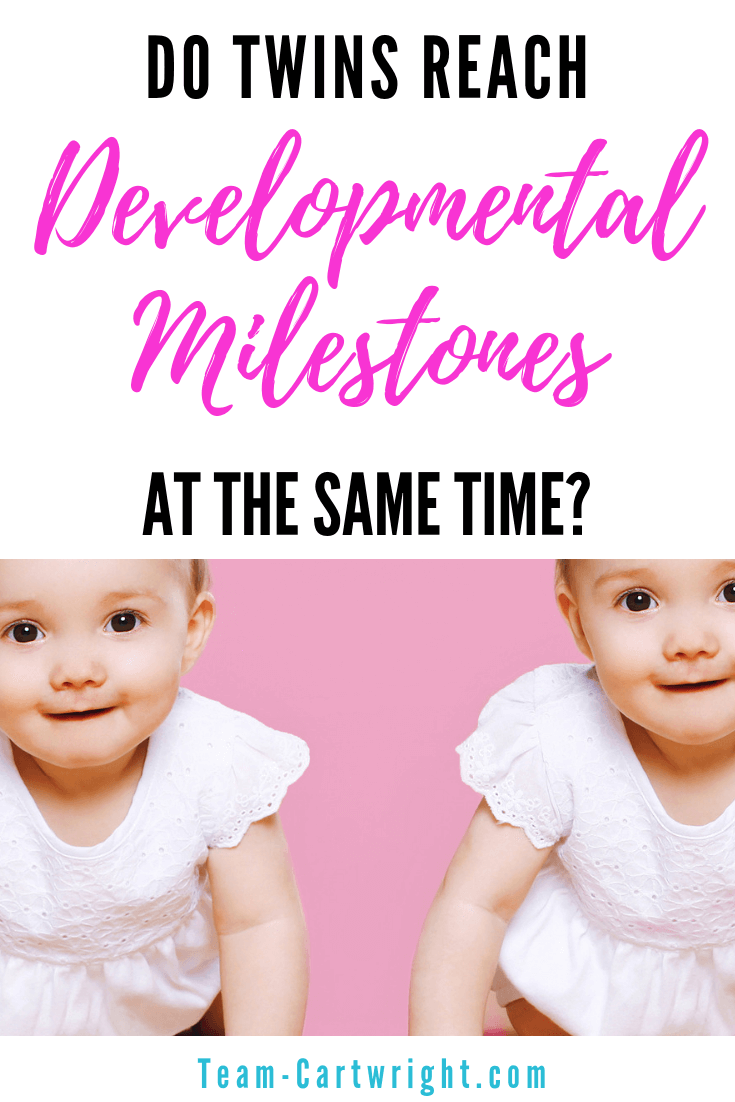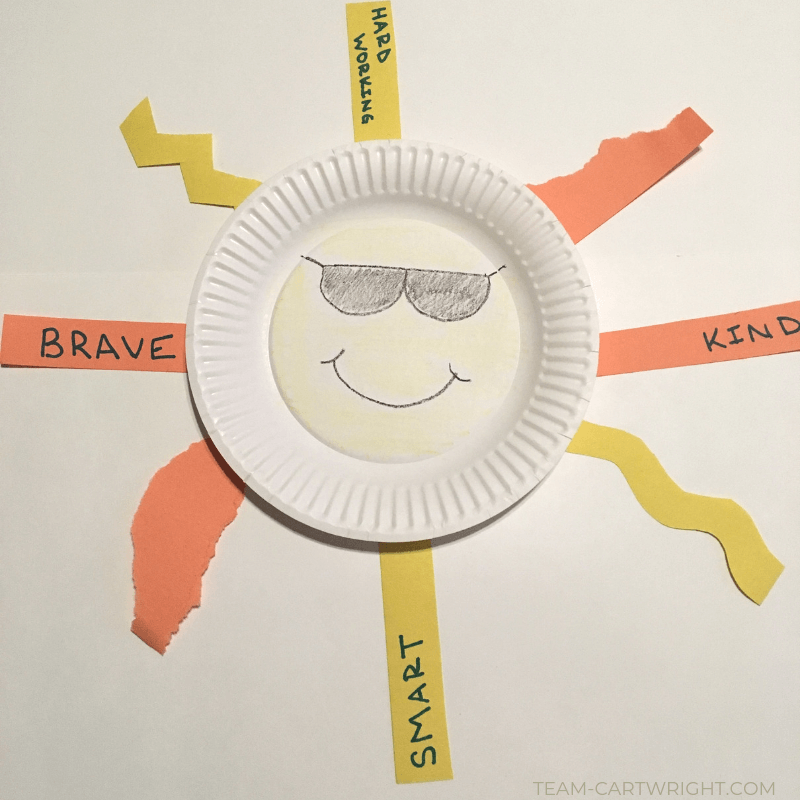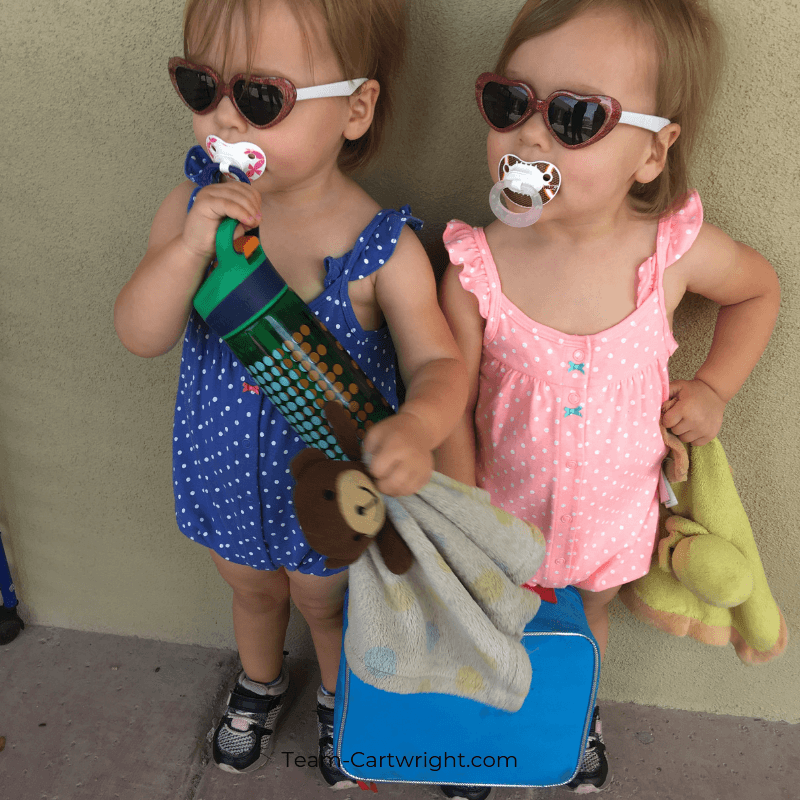Toddler Twin Milestones: What to do when your twins don’t hit milestones at the same time.
Every twin parent knows it. We work hard to remind ourselves of it. And we make sure others recognize it.
What is ‘it?’ The fact that we have two unique babies. We know we need to treat our twins as individuals. Even if they are identical we do not have two of the same baby.
This is easy enough, both in theory and in a lot of aspects of parenting. But it can be just so hard not to compare, especially when one twin hits milestones before the other.
Child development can make any parent worry, and when you have one child hitting milestones sooner or later than their twin it is normal to worry. But there are things you can do to keep fears at bay.
Here are some reasons why twins hit milestones at different ages and what to do when it happens.

What's In This Post?
3 Reasons Twins Might Reach Milestones at Different Ages
Not even identical twins do everything at the same time. At some point, your twins will reach a milestone at different times. It can cause a lot of overthinking and worry.
Don’t freak out, there are several good reasons one twin can lag behind her sibling.
Consider Size and Adjusted Ages
Twins are often born earlier and smaller than singletons. Because of this, they might hit milestones a little later. (This is a bummer when it comes to twin sleep.) So consider whether or not prematurity has anything to do with milestone delays.
You should also keep in mind the relative sizes of your twins. If one twin is heavier than the other at birth that twin might be able to go longer between feedings earlier. There is nothing wrong with the other twin, she just physically isn’t ready to get to that next step.
Look at Normal Milestone Ranges
There can be a wide range of normal when it comes to baby development. Like really large sometimes. The average range for learning to walk is 9 to 18 months. That is a 9-month difference! That makes one twin learning to walk at 10 months and the other at a year seems like a small variance.
It is helpful to do a little research and find out what is considered the average age range for milestones. It might feel strange if one twin is on the early side of the normal range and the other on the later side, but they can both be normal. (Even growth spurts can have a range of normal.)
Consider Personality Differences
Reaching developmental milestones isn’t always just about physical readiness. Personality plays a part.
Is one twin determined to reach a toy on a shelf while the other is content to play with their toes? Well, that first twin might pull up to standing first, just because she wanted to more.
Is one twin more motivated to be on the go? Does one have a really laid back attitude? This sort of thing can change when they start to reach new levels of development.
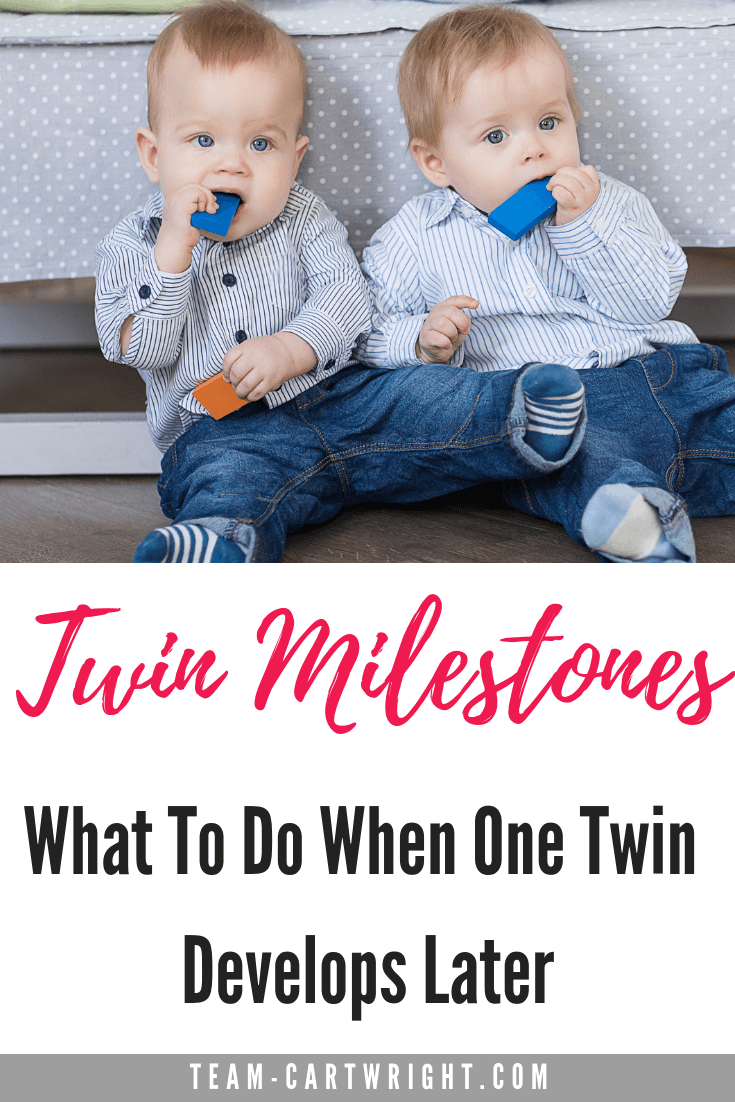
What To Do If You Notice One Twin Is Hitting Milestones Late
Talk To Your Pediatrician
The first things to do if you think one twin is late to milestones is talk to your pediatrician. More and more we know that early intervention is key to overcoming developmental delays.
If you have any reason to think one or both of your twins are not behaving in a way they should bring it up. The worst that happens is that you are reassured that your twins are on target. This is true for infant development and twin toddler development.
Track Progress Individually
I am a big believer in taking notes, especially with twins. Starting in my twin pregnancy I was jotting down what was happening with each baby individually. This continues today.
It can be really hard to remember, well, anything when you have two babies that need you so much. So write down who rolled, who pulled up, who babbled. This way you can look at each twin’s individual development curve.
If one twin pulled to standing first while his sibling didn’t seem interested for another month, it makes sense for that twin to walk first. He’s had more practice. But if your twins start walking a couple of months after they first pulled up to stand, it can be hard to remember who stood first and when.
Think of Your Twins as Singleton Siblings
I know, your twins shared a womb, but pretend for a moment that they didn’t. Would you worry if you had a singleton start to talk at 18 months and then a few years later have a singleton start to talk at 20 months? You probably wouldn’t fully notice the difference.
But when you are faced with one child starting to talk and it takes your other, who is the same exact age, two more months to start? Well, that can feel like a problem, even though both ages are perfectly normal.
So consider how you would feel if your twins were singletons a few years apart. Or what would you think if you were comparing toddlers from two different families?
Would it seem strange that the neighbor’s child started walking at 10 months and yours didn’t until 15 months? Okay, maybe it would. Parenting can get competitive. But realistically everyone would tell you kids develop in their own time. This is true with twins too.
Try Not To Label Your Twins
I doubt many twin parents would tell their kids that one twin is fast and one is slow, but it can be easy to label our twins in our minds. Twin A is the loud one, Twin B the quiet one. That sort of thing.
It can be easy to let our perceptions of what is supposed to be happening skew our view of what is actually happening. If we think Twin B is just quiet we might miss a true delay.
I have found that my twins swap who is the (fill in the blank) one frequently. One will be louder and needier while the other chill, then the switch. One is pushing for that next level while the other doesn’t seem to care, then the next milestone it’s the opposite.
Try to hold off on labeling and let your twins develop at their own pace.
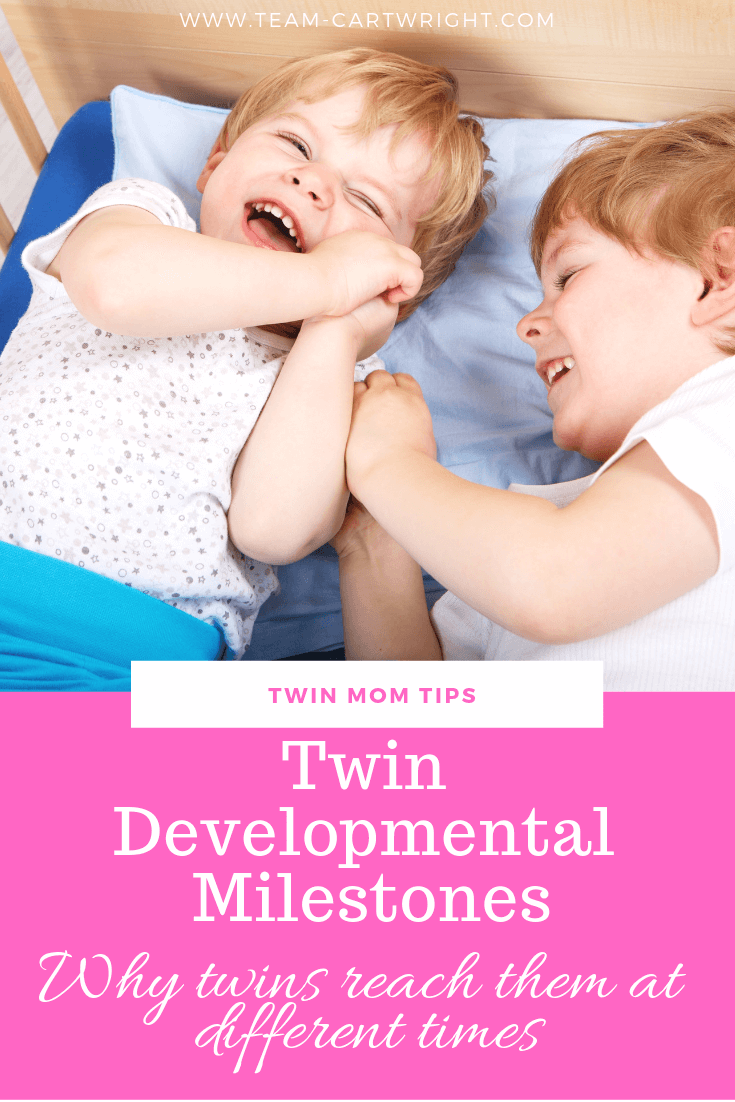
Twin Developmental Milestones
Twins are no different than any other baby in terms of development. The real challenge is that it is almost impossible not to do a direct comparison between two children whose lives are so similar.
Focus on the health of your twins, remember that development is so individual, and that milestone normal ranges vary.

Here are more posts you will like!
Childhood Growth Delay: One Mom’s Journey
Twin Milestones To Look For in the First Year
Breastfeeding Twins: The Ultimate Resource Guide
Truths About Toddler Twins Every Twin Parent Knows
